The year in world news: Violence and upheaval

The Los Angeles Times covered news all around the world. This video highlights some of our staff’s most engaging visuals and storytelling from 2017.
- Share via
Nationalist challengers defeated — for now
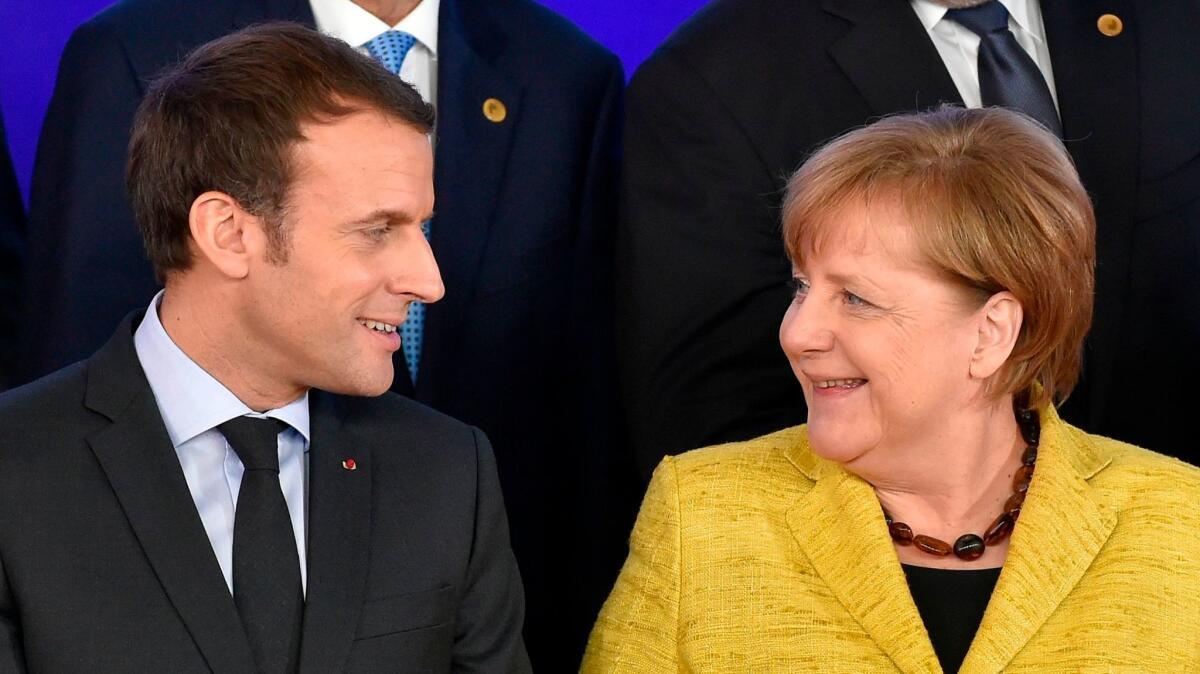
Europe’s two most important governments got a taste of the populist resurgence that catapulted Donald Trump to power in the United States. In May, Emmanuel Macron — a centrist who shunned his country’s establishment parties — became France’s youngest president by defeating the far-right nationalist Marine Le Pen. In September, Germany’s Angela Merkel weathered a strong nationalist challenge to come out on top of a parliamentary election — but with such a weak mandate that she referred to herself as a “caretaker chancellor” and was considering another election.
Britain suffers series of attacks claimed by Islamic State
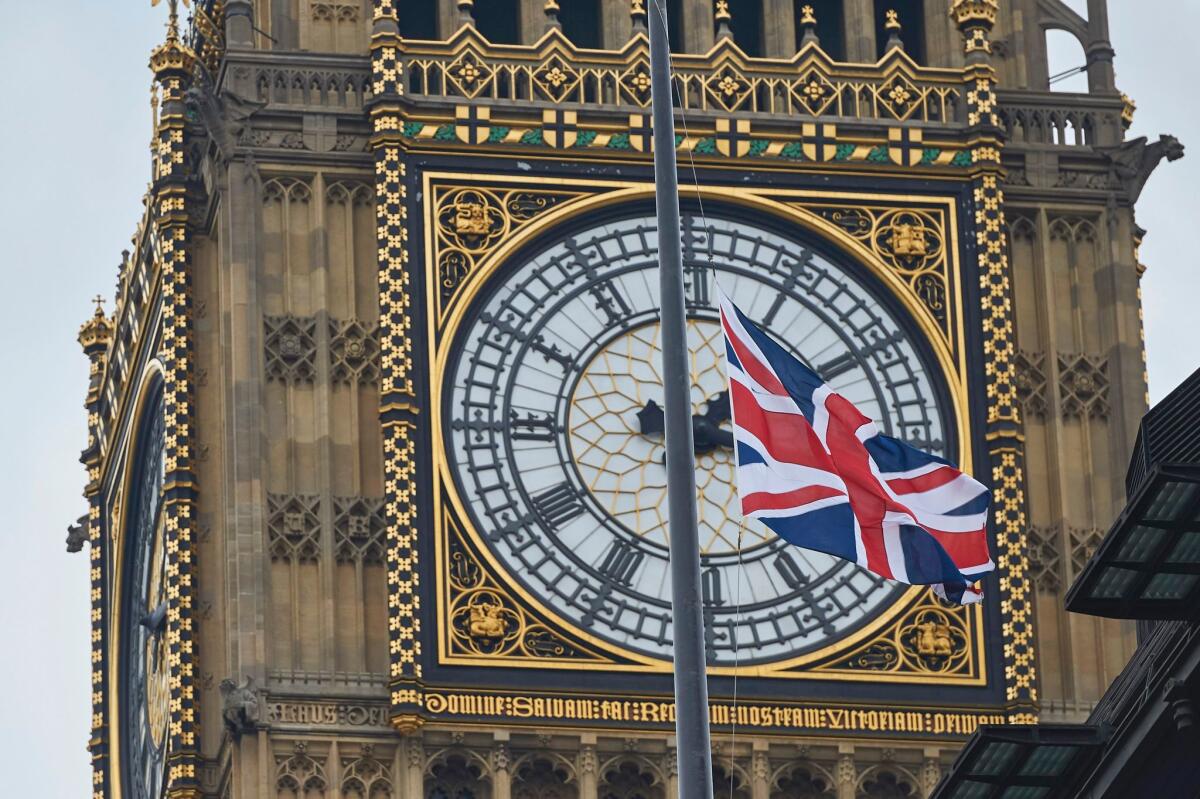
The singer Ariana Grande had just ended her concert in Manchester, England, with the song “Dangerous Woman” when the suicide bomber struck. Twenty-two people would die and dozens more were injured in the May 22 attack, claimed by Islamic State. It was one of several terrorist attacks that Islamic State claimed in Britain this year, including attacks outside Parliament in March, at London Bridge in June, and on the London Underground in September. In an apparent revenge strike in June, a man from Wales drove his car into a crowd of Muslim worshipers in London.
Trump withdraws U.S. from Paris climate accord
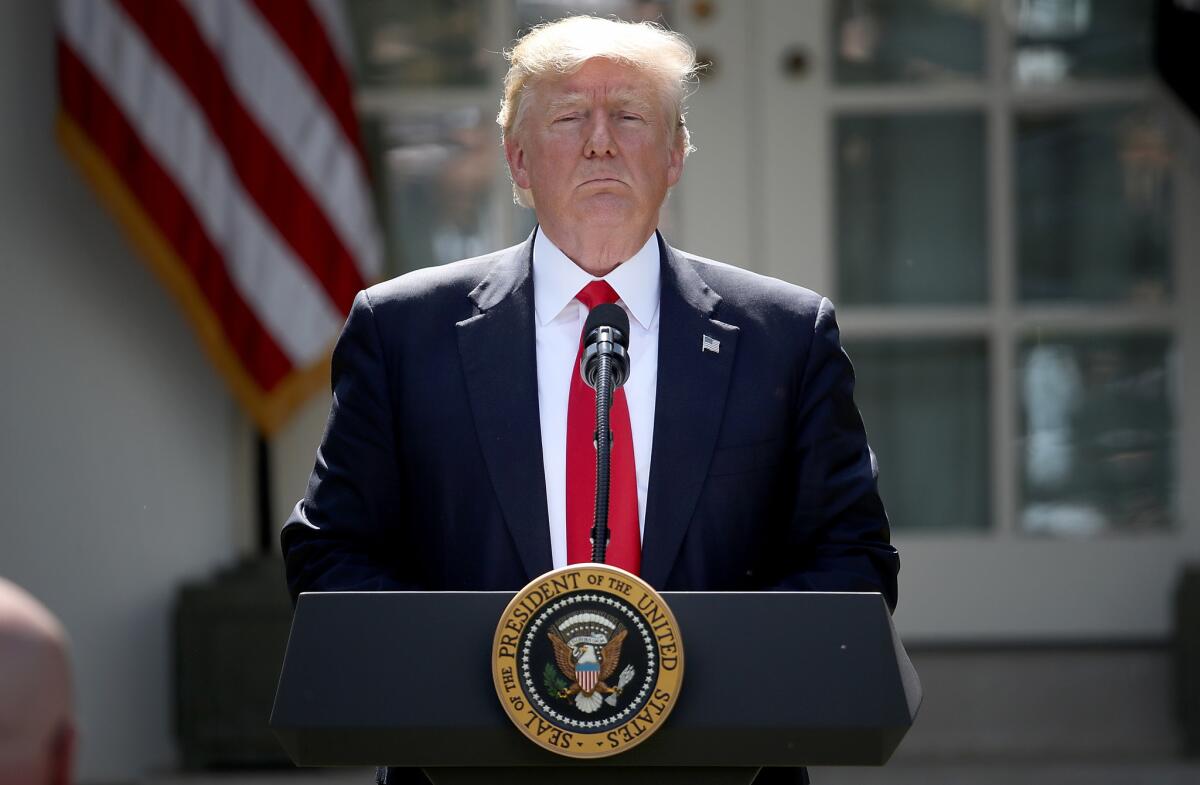
Donald Trump fulfilled one of his campaign promises when the president announced that the U.S. would be pulling out of the Paris accord on climate change. “It is time to put Youngstown, Ohio, Detroit, Mich., and Pittsburgh, Pa. … before Paris, France,” Trump declared in an announcement in the White House Rose Garden. That declaration came six months after U.S. government agencies reported that global temperatures were the hottest on record in 2016 for the third year in a row. Later in the year, the Trump administration hinted that it might not pull out of the Paris accord, but seek new terms.
Islamic State loses territory in Iraq and Syria
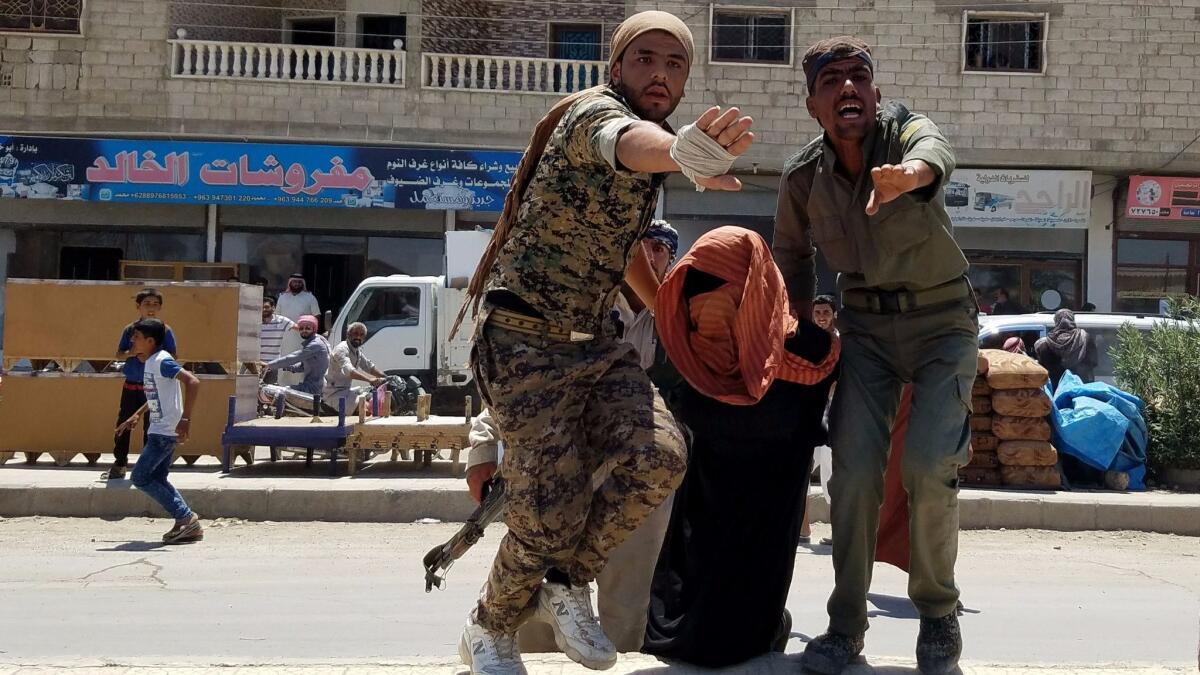
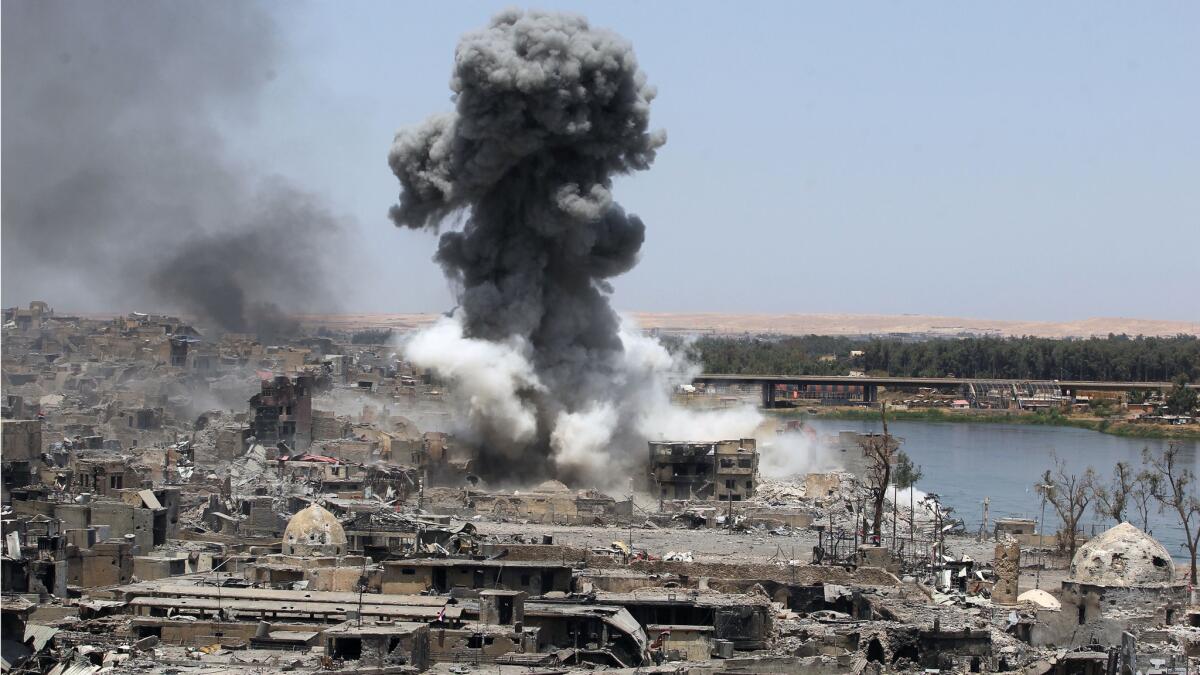
This was the year that Islamic State lost its caliphate. After months of intense, block-by-block fighting, U.S.-backed Iraqi forces reclaimed Iraq’s second-largest city, Mosul, from Islamic State in July. Then, in October, U.S.-backed forces in Syria wrested control of the group’s “capital,” Raqqah. After those defeats, the Islamist extremists were left with very little territory, but experts warned that they weren’t toothless and still had the capability to carry out — and inspire — international terrorism. “It’s a different story now, with a different plot,” said Hassan Hassan, a fellow with the Washington-based Tahrir Institute.
'A textbook example of ethnic cleansing' in Myanmar
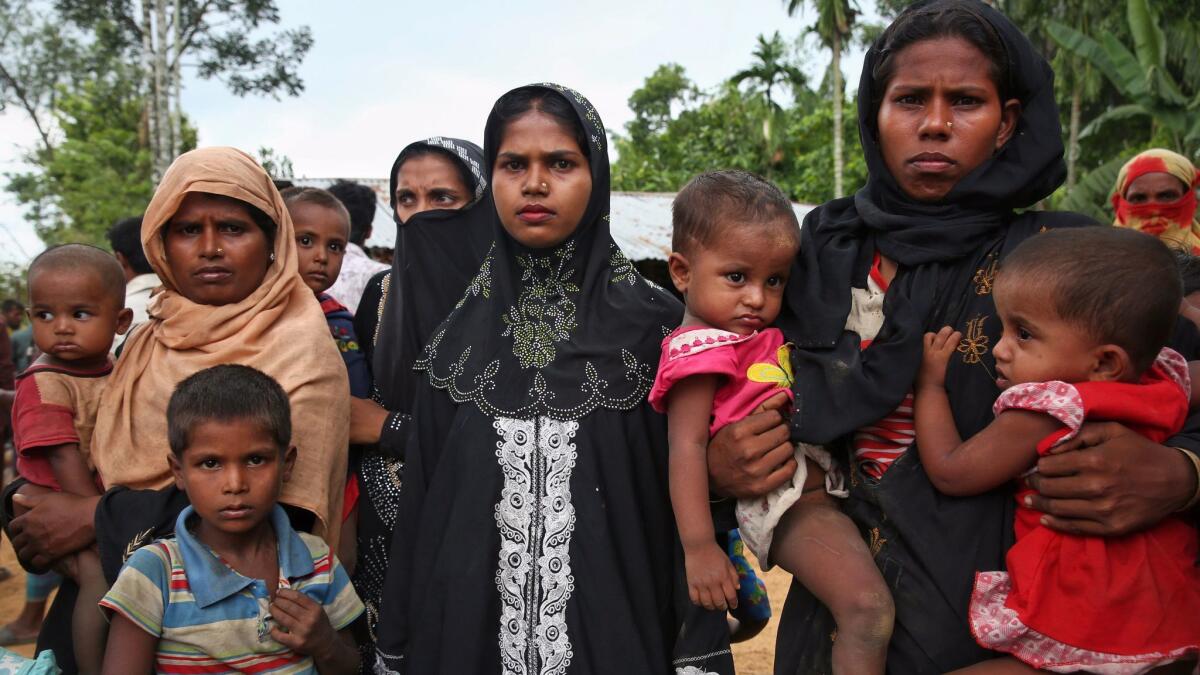
A year ago, few people outside Myanmar and its neighboring countries had ever heard of Rohingya Muslims, although their plight had been growing steadily worse in recent years. Then, in August, Rohingya began fleeing Rakhine state in Myanmar as government troops carried out what the United Nations called “a textbook example of ethnic cleansing” in response to an insurgent attack. First thousands, then tens of thousands, then hundreds of thousands fled, mostly to Bangladesh. The crisis tarnished the international reputation of Myanmar’s leader, Aung San Suu Kyi, and even drew Pope Francis into the fray.
Hundreds die when 7.1 earthquake hits central Mexico
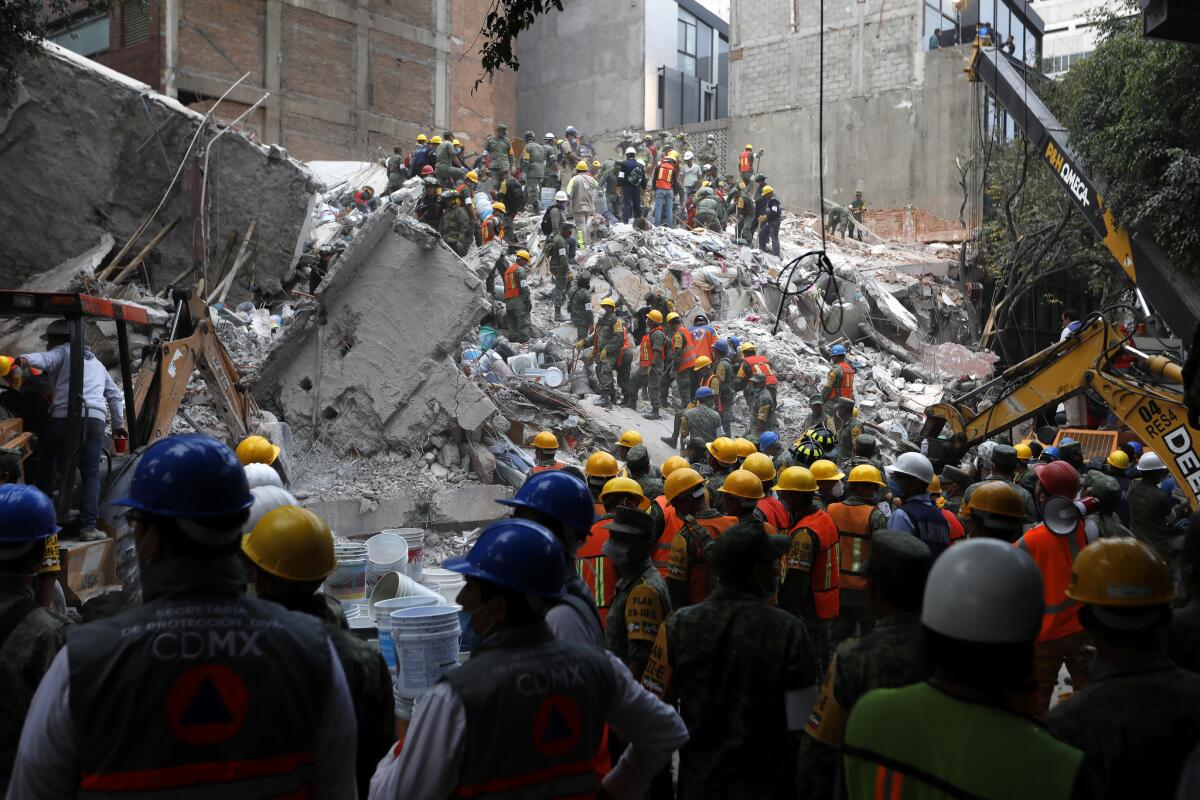
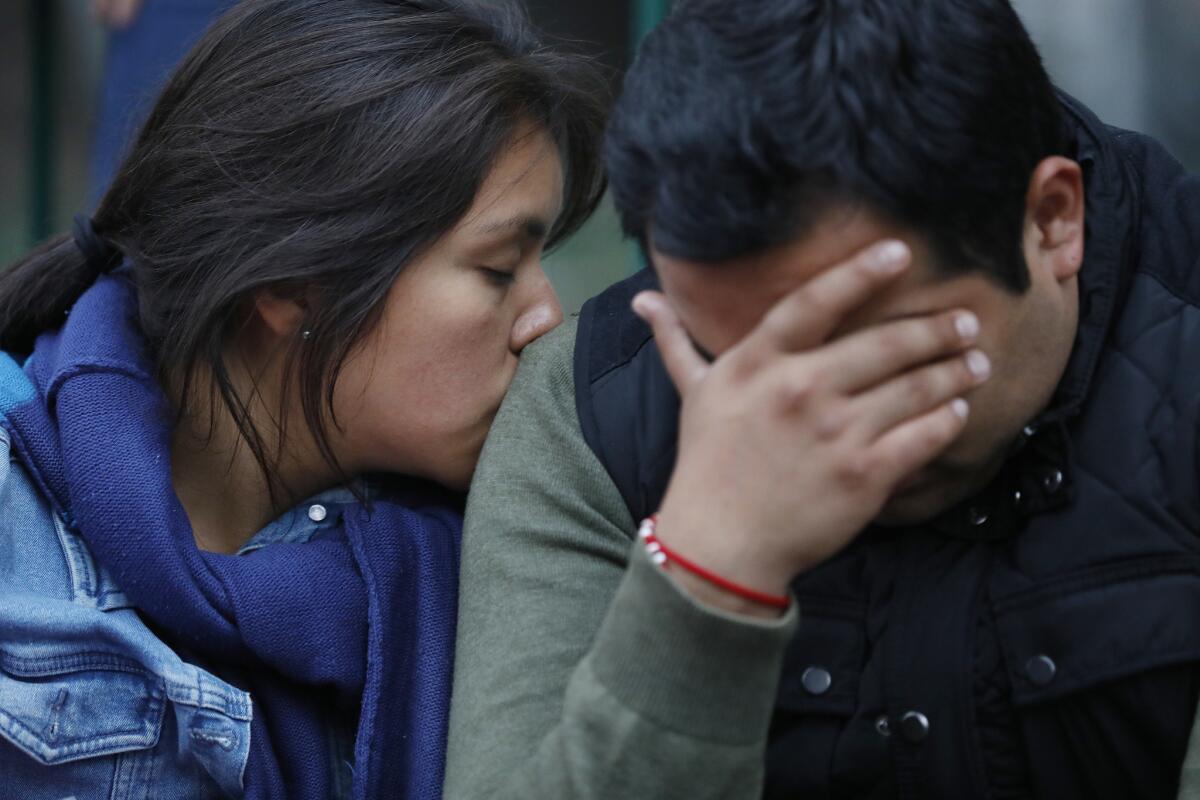
The sirens sounded at 11 a.m. on Sept. 20, marking the 32nd anniversary of one of Mexico’s worst disasters, a magnitude 8.0 earthquake in which thousands died in the nation’s capital. And then, about two hours after the observance, it happened again. This time, the quake was magnitude 7.1, also centered near Mexico City. Lessons learned in the prior quake helped contribute to a much lower death toll of around 325 people. And, tragic though it was, it also led to a surge of national pride as Mexicans drew together and helped each other. The quake gave birth to a popular hashtag: #FuerzaMexico, or Strength in Mexico.
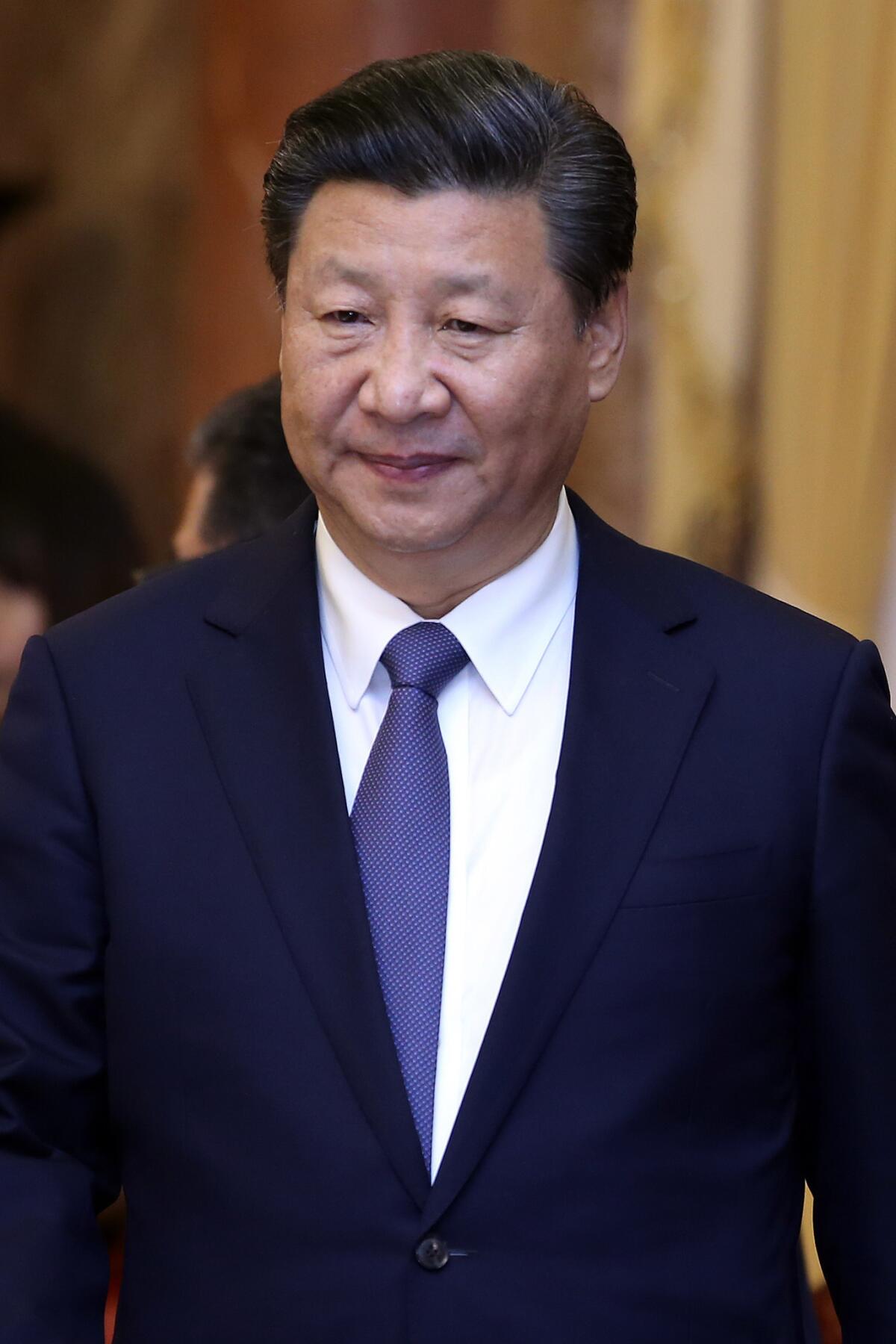
It's official: China's Xi Jinping is strongest leader since Mao
Until this year, only one Chinese leader — Mao Tse-tung — was so powerful as to warrant a mention in the country’s constitution while he was still alive and in power. That changed on Oct. 24, when China’s Communist Party agreed to insert Xi Jinping’s name and ideology into the constitution, affirming what was already clear: Xi is not your average Chinese leader. By the time his second five-year term was rubber-stamped at the Communist Party congress, Xi had made his mark as the country’s strongest, most authoritarian leader since Mao — with no clear successor in sight.
Catalonia votes to declare independence from Spain
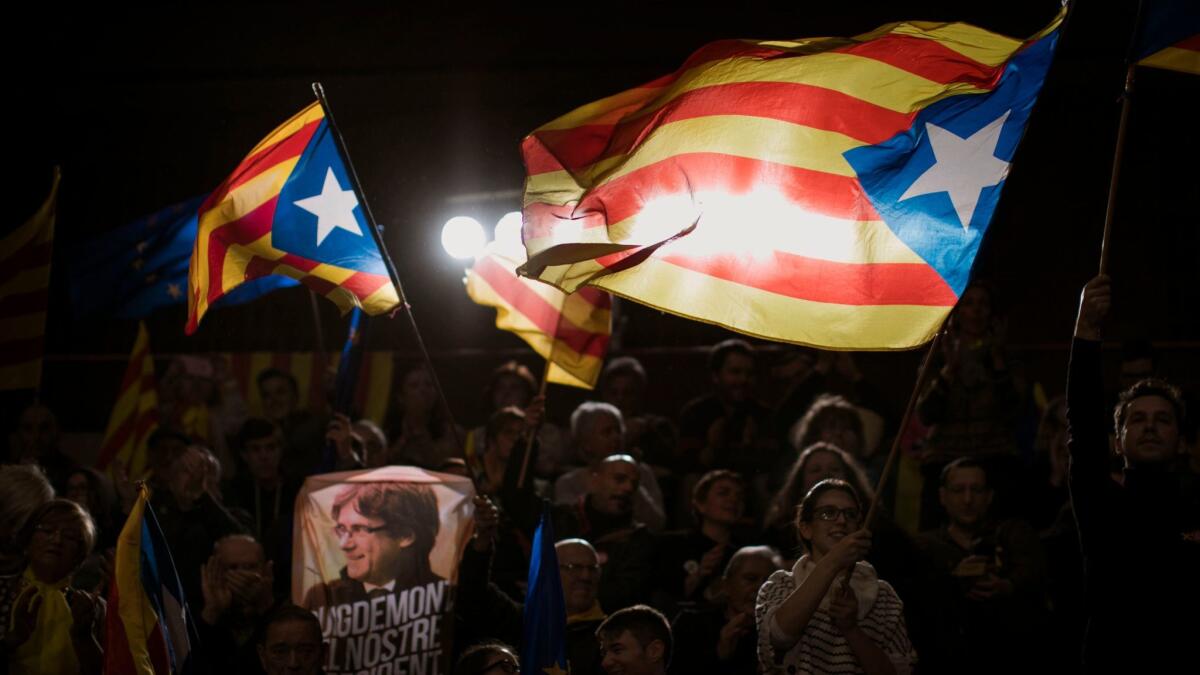
With nationalism roiling Europe, it was perhaps inevitable that separatist movements could gain traction. And so it was in Spain, where the affluent northeastern province of Catalonia — which has long nurtured its own identity and language — voted overwhelmingly on Oct. 1 to declare independence. What followed was a high-stakes game of chicken between the Spanish government and Catalan leaders — who ultimately fled to Belgium to escape arrest and eventually turned themselves in to police. For now, Catalonia remains part of Spain.
Mugabe resigns after 37 years in power
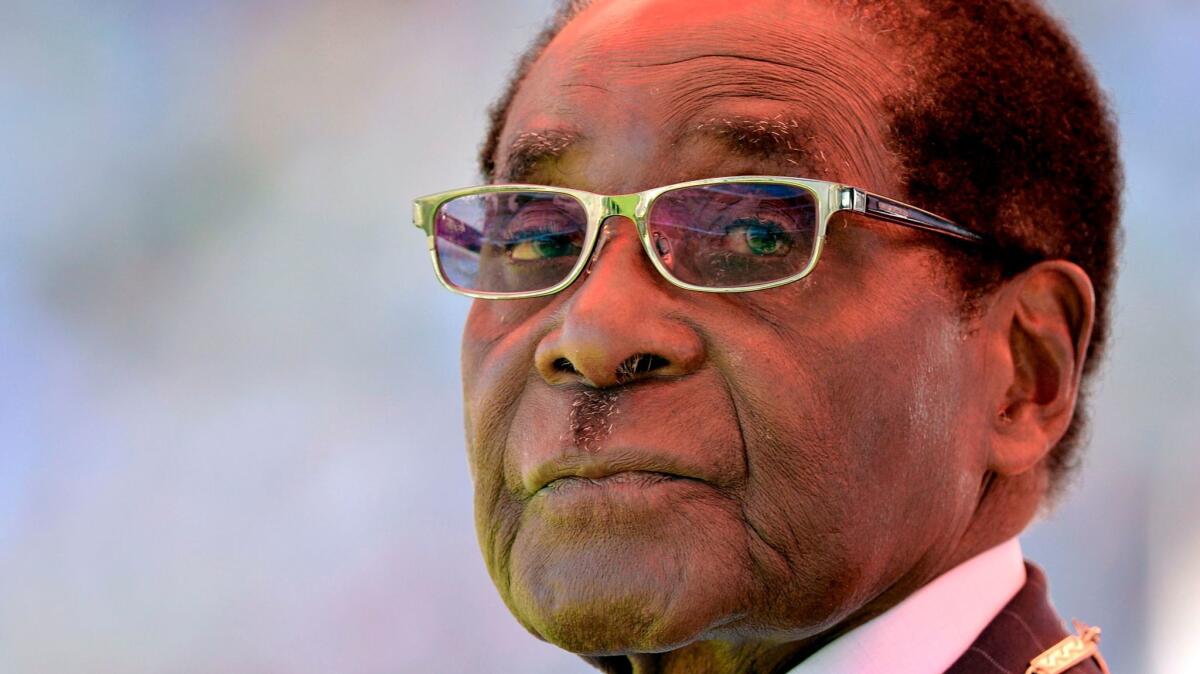
He had been president for 37 years, a revolutionary figure who had helped end white minority rule in Zimbabwe, the former Rhodesia. A majority of the people in his country could remember no other leader. But all that came to an abrupt and surprising end on Nov. 21 when Robert Mugabe, a hero who became a dictator, stepped down in the face of a de-facto coup by his military. “I will always remember this day,” said Brian Tumbare, an unemployed 25-year-old in Harare, the capital. “I have suffered for too long, and I am just loving every moment of it. It’s like our independence day.”
North Korea's missile tests raise stakes
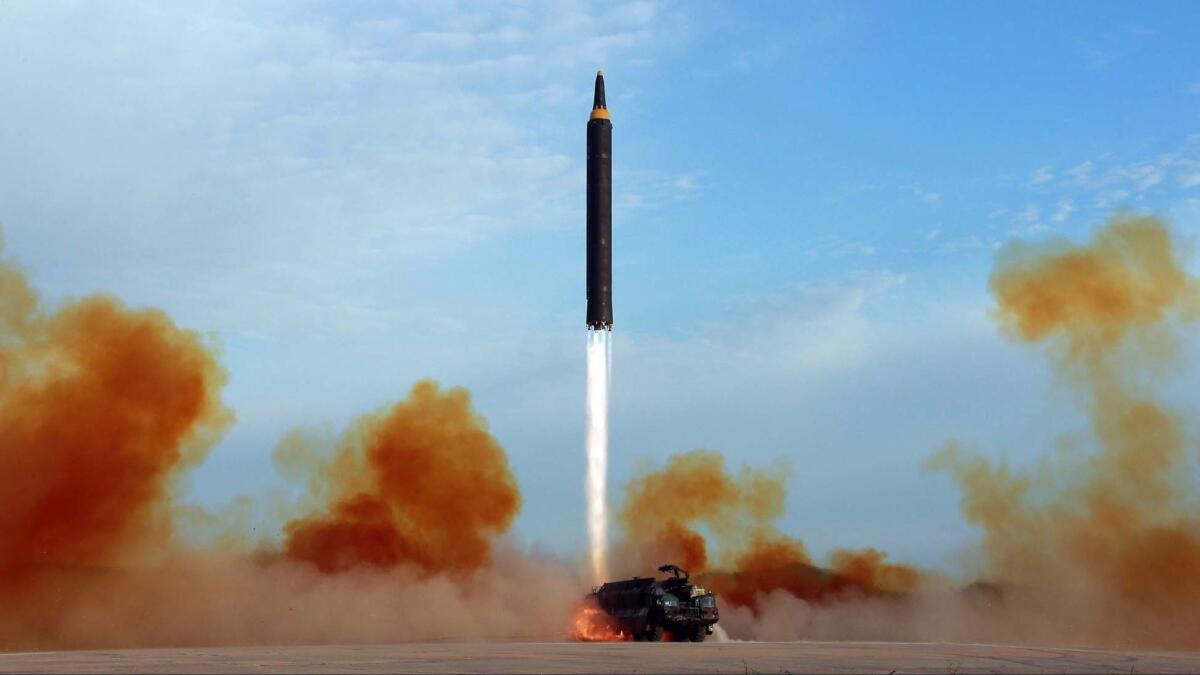
After launching its third intercontinental ballistic missile of the year, North Korea declared that it had achieved its long-held goal of becoming a full nuclear power. Its provocative actions throughout the year sharply raised the stakes of its rivalry with the United States, which was only compounded by a series of taunts and insults between President Trump and North Korea’s leader, Kim Jong Un. Kim called Trump a “dotard,” sending Americans to their dictionaries, while Trump dubbed Kim “Little Rocket Man,” threatening to rain “fire and fury” on Pyongyang.
What happens when the 'fire and fury' starts? »
Can North Korea’s missiles deliver an atomic weapon to the U.S. mainland? Maybe »
Sign up for Essential California
The most important California stories and recommendations in your inbox every morning.
You may occasionally receive promotional content from the Los Angeles Times.







